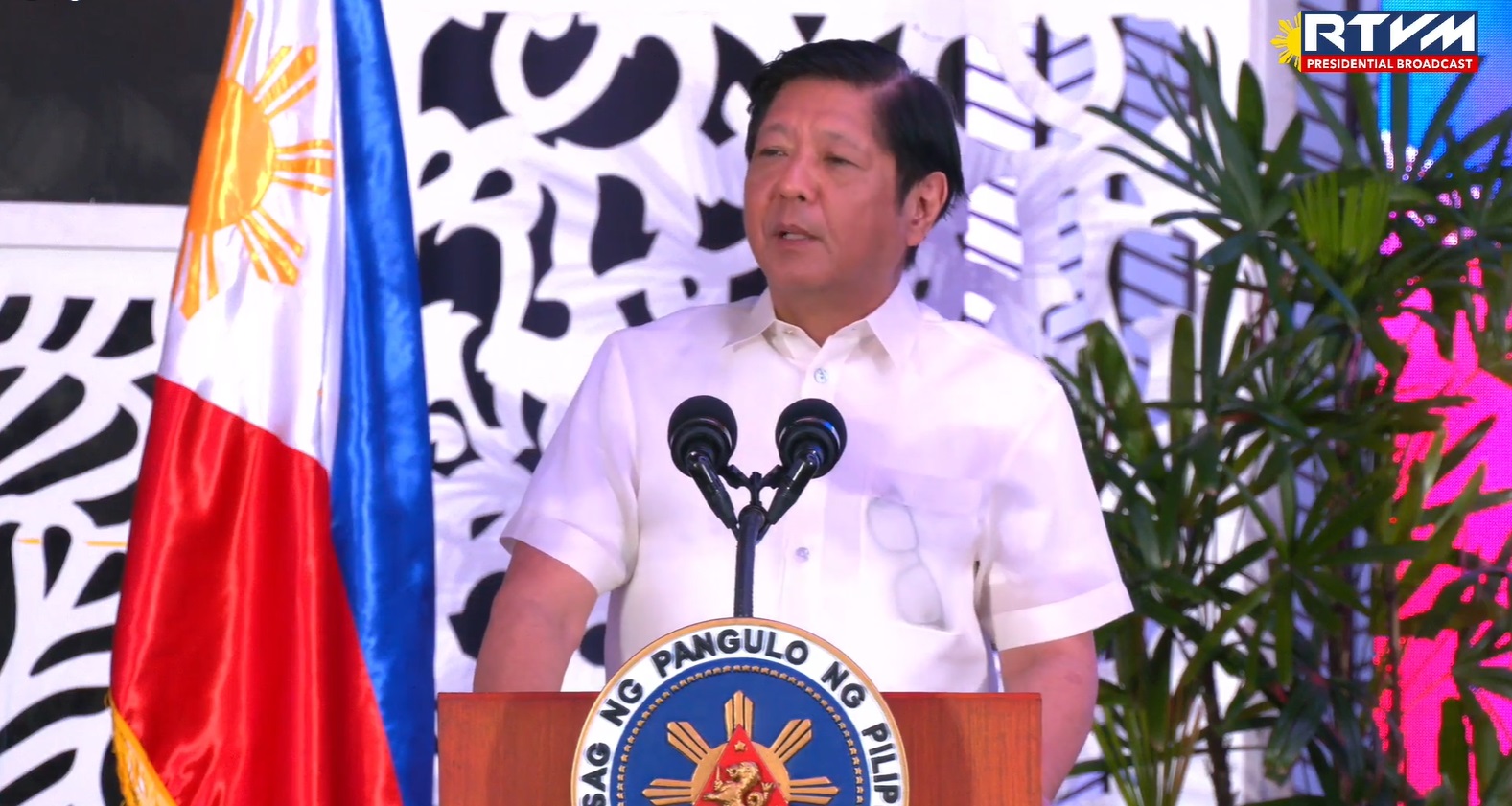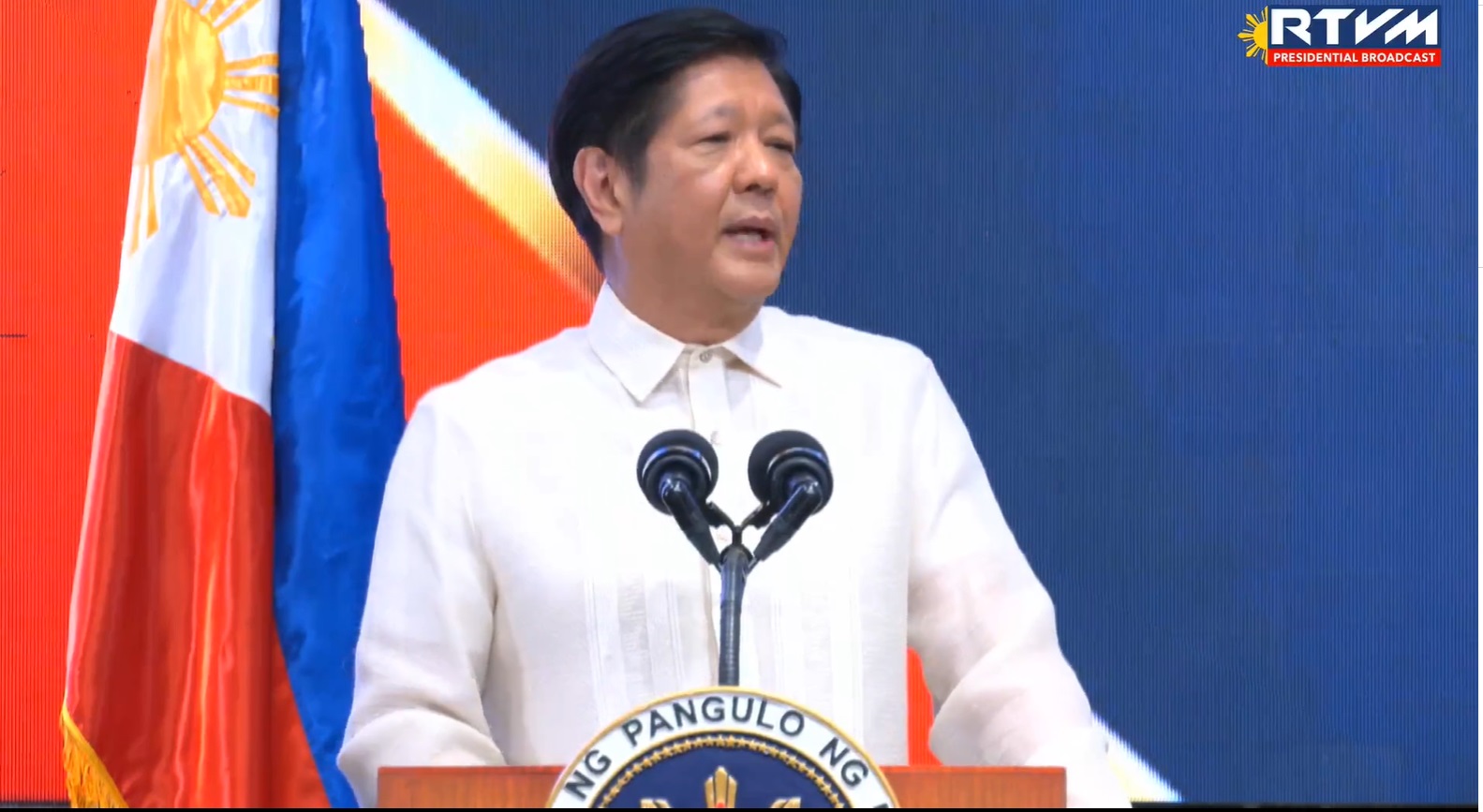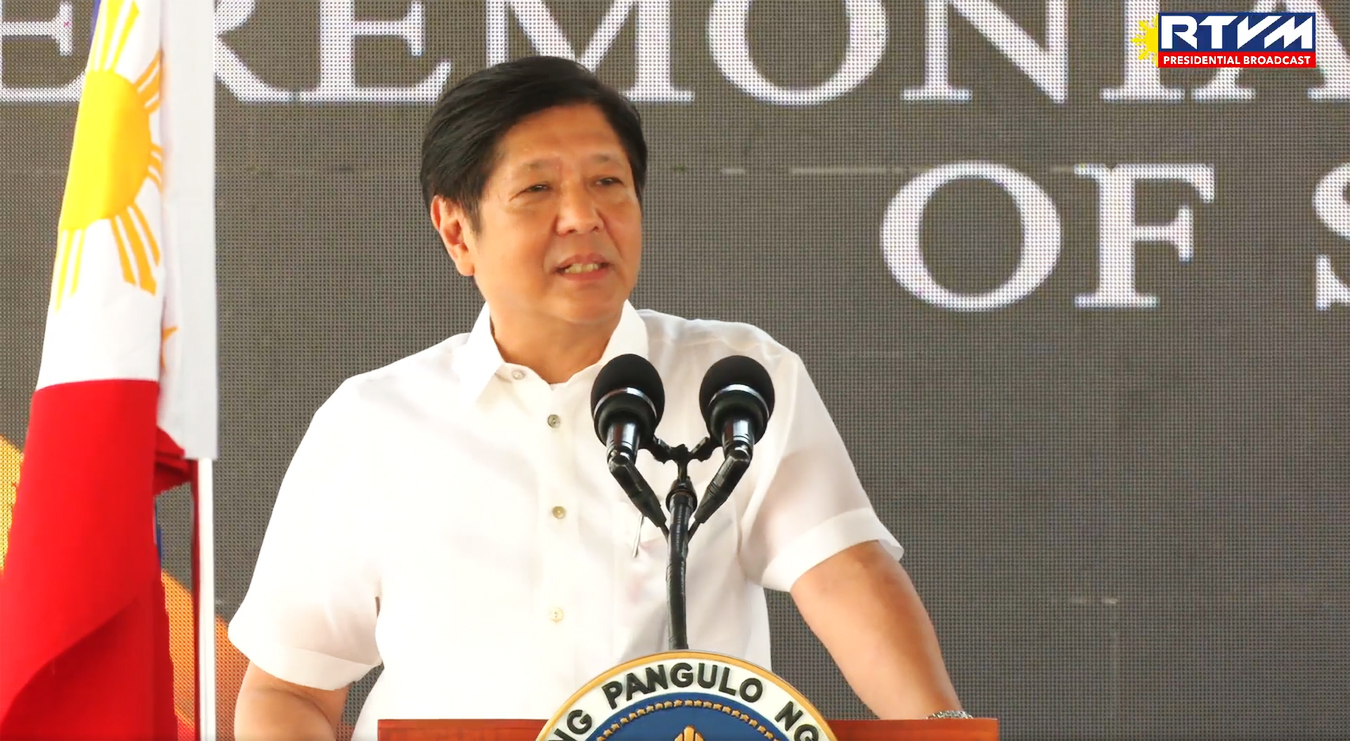I sincerely thank President Biden and the United States Government for convening this Second Summit for Democracy, together with the leaders of the co-hosts, the Republic of Costa Rica, the Republic of Korea, and the Kingdom of the Netherlands, and the Republic of Zambia.
This Summit affirms the solidarity of nations bound by values of democracy and sends a powerful message of our collective will to bring about the best of peoples and societies empowered by freedom.
We stand together especially when humanity faces some of
the most critical challenges of our times, including threats to our survival such as climate change, global warming,
the pandemic, and food insecurity.
In May last year, a few months after the first Summit for Democracy was held, a record fifty-six (56) million Filipinos exercised their right to vote, showing the world that the Philippines is an ever flourishing beacon of freedom, true to its roots as the first Asian Republic.
When I took office in July last year - amidst the lingering effects of the COVID-19 pandemic, and the urgent need to ensure a swift and resilient economic recovery, I pledged to the people that we shall overcome these pressing challenges together, encouraging participative governance that adopts new ways and innovative solutions by fostering the spirit of unity, dialogue,
and citizen empowerment.
Recognizing that economic recovery and progress can only take place in a responsive environment with transparent, effective, and responsible institutions, this government has rolled out measures to achieve our objectives for people-centered growth and for their prosperity, by consolidating reforms in our judicial system.
We are investing more to enhance the administration of justice through the various institutions and mechanisms already in place to protect the right to life, liberty, and security of Filipino people.
The government prioritized the establishment of the Department of Migrant Workers, a national agency whose primary mandate is to protect and to promote the rights of more than 10 million Filipinos who live and work abroad.
We are further strengthening well-established accountability mechanisms and policies to protect women and children.
Our justice reform agenda acknowledges that real justice means the humane treatment of persons deprived of liberty and efficient prosecution of cases.
In this light, we are pouring resources and energy into improving the processes in the investigation of cases and the witness protection program.
In the Philippines’ continuing campaign against illegal drugs, we continue to focus on strengthening our programs on rehabilitation, prevention, education and assistance to
drug victims and their families, [and] ensuring transparency and accountability on law enforcement operations.
Our Joint Program on Human Rights or UNJP which we launched with the United Nations in 2021, has shown significant progress in fostering consensus building and collaborative partnership in a broad range of target areas.
Its capacity building and technical cooperation framework complements our efforts with respect to investigative and accountability mechanisms; improved data gathering on alleged police violations; civil society engagement; strengthening national mechanisms to support our commitment in various human rights agreements and human rights-based approach
to drug control and counter-terrorism.
The UNJP affirms the power of partnerships and the framing of human rights as a space for genuine, constructive, and transformative dialogue and cooperation. It is a testament that partnerships flourish when they uphold human dignity
and freedom, empower stakeholders, and respect the agency of states to strengthen their institutions.
Let me emphasize the rule of law prevails in the country—our criminal justice system is fully functioning. We continue to improve mechanisms such as the AO35 inter-agency committee to enhance accountability.
The Philippines’ commitment to fight impunity for atrocity crimes is solid and unwavering, notwithstanding the withdrawal of the country from the Rome Statute.
The Philippines has a national legislation punishing heinous crimes. We have vigorously exercised our jurisdiction to investigate and prosecute crimes, including those allegedly committed in the context of the anti-illegal drugs campaign.
The Philippines will continue to engage countries bilaterally and in international platforms on issues concerning democracy, human rights, and good governance, as long as these engagements are constructive, based on facts, and respectful of Philippine sovereignty.
The Philippines will sustain its tradition of open, constructive, and active engagement on human rights on matters that will meaningfully contribute towards reinforcing the sinews of democracy and of freedom.
Thus, we enable our people to flourish and meet our national aspirations to be a modern prosperous middle income society by 2040.
Let me affirm and attest to what has been a recurring theme for this Summit: Democracy does deliver. And it does this best when it places at its center people, their freedom, and human dignity.
Thank you.
--- END ---




